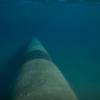Jan De Nul Cuts CO2 in Dredging Work
Jan De Nul Group, the international dredging company, said that the maintenance dredging works in the marinas of Nieuwpoort on the Belgian coast got underway.
“What makes this project so unique, are the CO2-reducing measures taken by Jan De Nul Group. An example for the industry and future dredging works in Europe,” said a press release from the company. "Its an example for the industry and future dredging works in Europe."
The maintenance dredging works in Nieuwpoort entail the dredging works in the port access channel and in the marinas. A large part of the dredging works are executed by means of the Cutter Suction Dredger Hendrik Geeraert and the split hopper barges Magellano and Verrazzano.
Earlier this year, Jan De Nul Group announced its commitment to emit 15% less CO2 on this project. To achieve this goal the vessels Magellano and Verrazzano will be equipped with renewable biofuel from certified and sustainable waste flows. Together with the Alexander von Humboldt, Jan De Nul Group now has three vessels in the Benelux sailing on sustainable biofuel.
To further highlight its pioneering role, Jan De Nul Group has set up its newly developed energy-efficient construction shed, which consumes about 80% less energy than a standard construction site office, for its local office in Nieuwpoort. A first in Belgium.
As earlier mentioned, three Jan De Nul vessels in the Benelux are currently running on 100% sustainable fuel. And the ambitions are to go much higher.
“In early 2020, our brand new trailing suction hopper dredger Sanderus will come to Belgium to execute maintenance dredging works on the river Scheldt and alongside the coast”, said Michel Deruyck, Head of the Energy Team of Jan De Nul Group.
“Like all our new vessels, this new dredger is a ULEv (Ultra-Low Emission vessel). It is equipped with a state-of-the-art exhaust gas treatment system that extracts up to 99% of the nanoparticles from exhaust gases. Add to this the renewable fuel that will be used for this vessel and you’ll have a huge CO2 reduction and strongly decreased air emissions,” Deruyck added.
Besides, measurements show that these vessels emit more than 90% less nitrous oxides (NOx). “It is exactly the emission of this nitrous oxide that appears to be problematic during the execution of the replenishment works ‘Kustlijnzorg’ in the Netherlands.”










